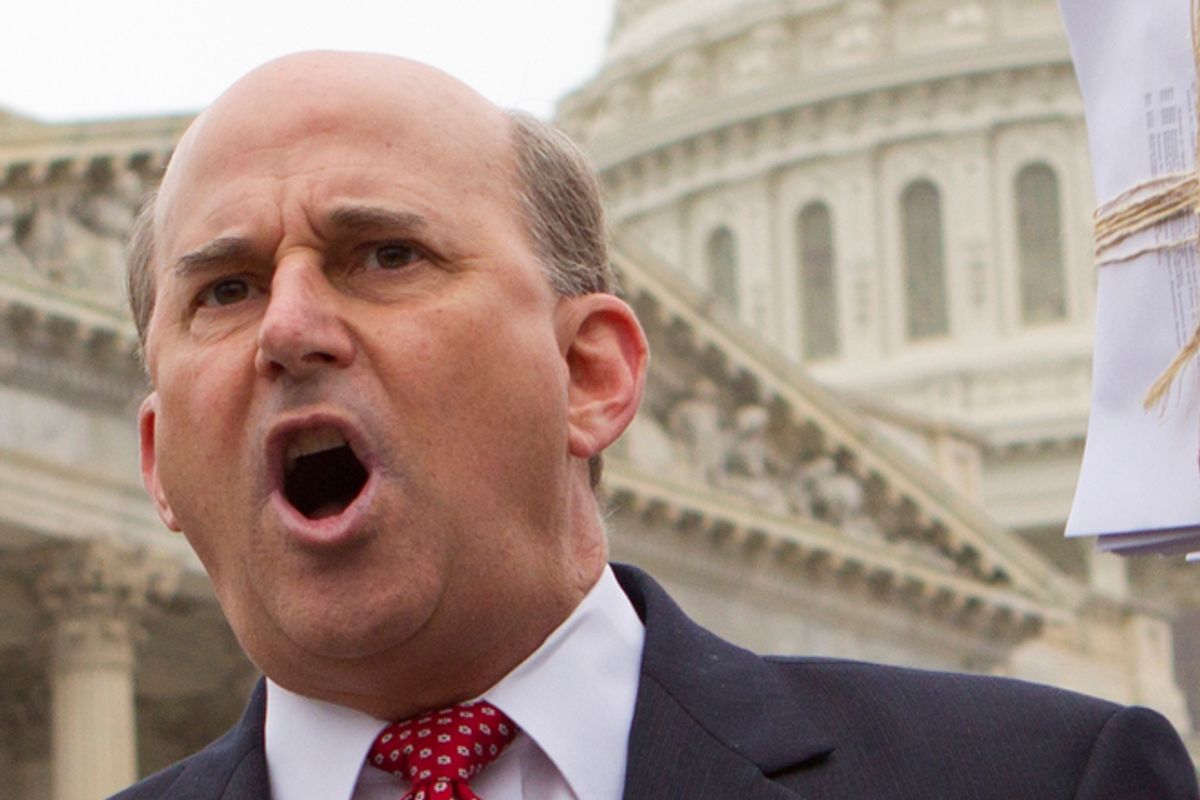At a Thursday congressional committee hearing on a proposed ban on abortion at 20 weeks in Washington, D.C., Christy Zink, a mother of two, testified how the measure would harm women who require late-term abortion care due to fetal abnormalities and other potentially fatal complications.
Zink knows the harm such restrictions can inflict on women faced with this choice because she was one of them. At 21 weeks, her doctors informed her that her fetus had no brain function and would very likely not survive the pregnancy; it was an abnormality that could not have been detected earlier in her pregnancy, as she told the committee:
Our son's condition could not have been detected earlier in my pregnancy. Only the brain scan could have found it. The prognosis was unbearable. No one could look at those MRI images and not know, instantly, that something was terribly wrong. If the baby survived the pregnancy, which was not certain, his condition would result in numerous surgeries to remove more of what little brain matter he had in order to diminish what would otherwise be a state of near-constant seizures.
I am here today to speak out against the so-called Pain-Capable Unborn Child Protection Act. Its very premise—that it prevents pain—is a lie. If this bill had been passed before my pregnancy, I would have had to carry to term and give birth to a baby who the doctors concurred had no chance of a life and would have experienced near-constant pain. If my son had survived the pregnancy—which was not certain—he might have never left the hospital. My daughter's life, too, would have been irrevocably hurt by an almost always-absent parent.
The decision I made to have an abortion at almost 22 weeks was made out of love and to spare my son's pain and suffering.
In response to Zink's testimony, Rep. Louie Gohmert, R-Texas, expressed "sympathy" for Zink, then accused her of "ripping apart" her fetus:
Ms. Zink, having my great sympathy and empathy both. I still come back wondering, shouldn’t we wai t... and see if the child can survive before we decide to rip him apart? So, these are ethical issues, they’re moral issues, they’re difficult issues, and the parents should certainly be consulted. But it just seems like, it’s a more educated decision if the child is in front of you to make those decisions.
As Tara Culp-Ressler at ThinkProgress notes, Gohmert is not the first lawmaker to make such a tone-deaf remark when confronted with the harm such restrictions cause. When former Solicitor General David Cole defended a similar measure in Arizona (the ban was struck down by a federal court this week), Cole called such considerations "the woman's problem":
Judge Andrew Kleinfeld, a panel member appointed by former President George H.W. Bush, repeatedly expressed concern that the law might not afford women the opportunity to abort a fetus with birth defects in cases where the defects are not apparent until just before 20 weeks.
He also questioned the need to prohibit abortions at that stage of the pregnancy, especially for fetuses bound to develop “horrible birth defects.”
“They’re basically born into hell and then die,” Kleinfeld said. “I don’t see how the courts could act before viability” of the fetus.
“With due respect, that’s the woman’s problem,” responded David Cole, Arizona’s solicitor general. “She should have made that decision earlier.”
Gohmert's remark below (beginning at the 5 minute mark):

Shares